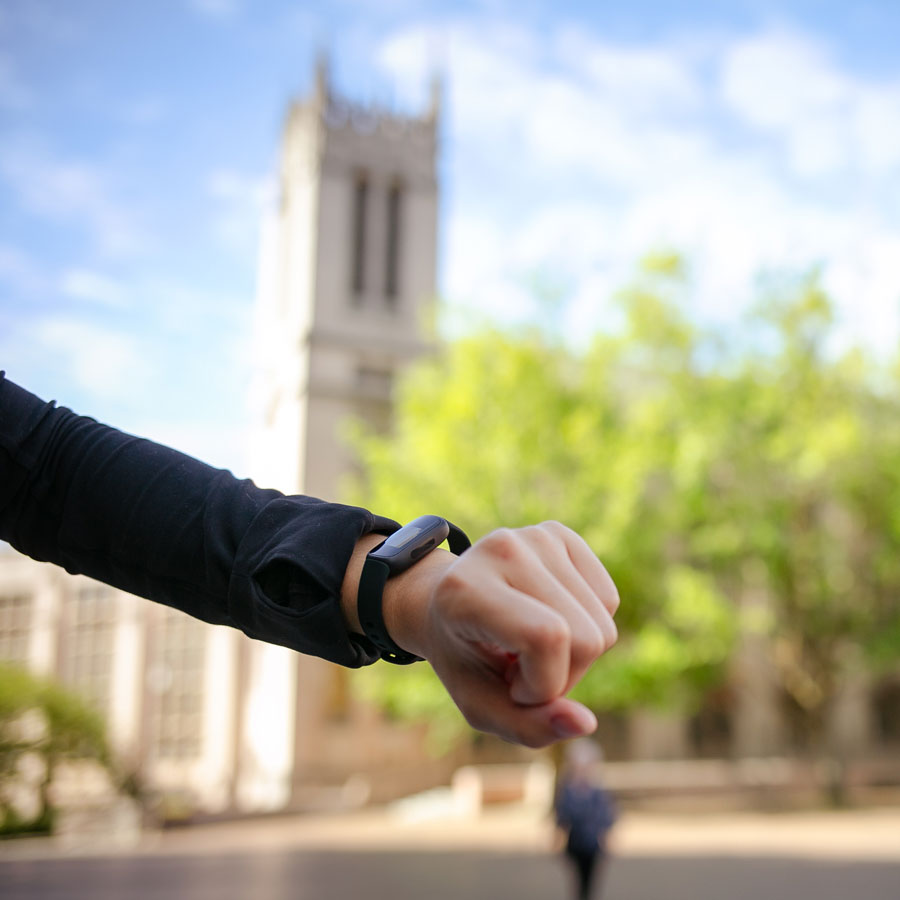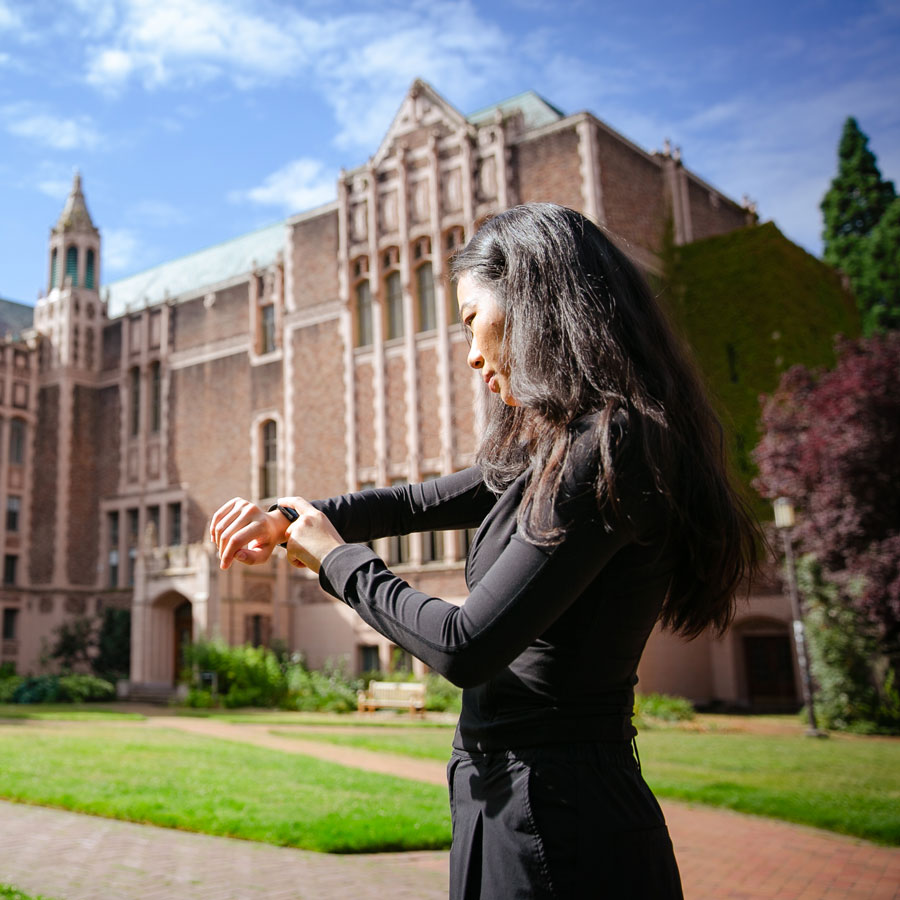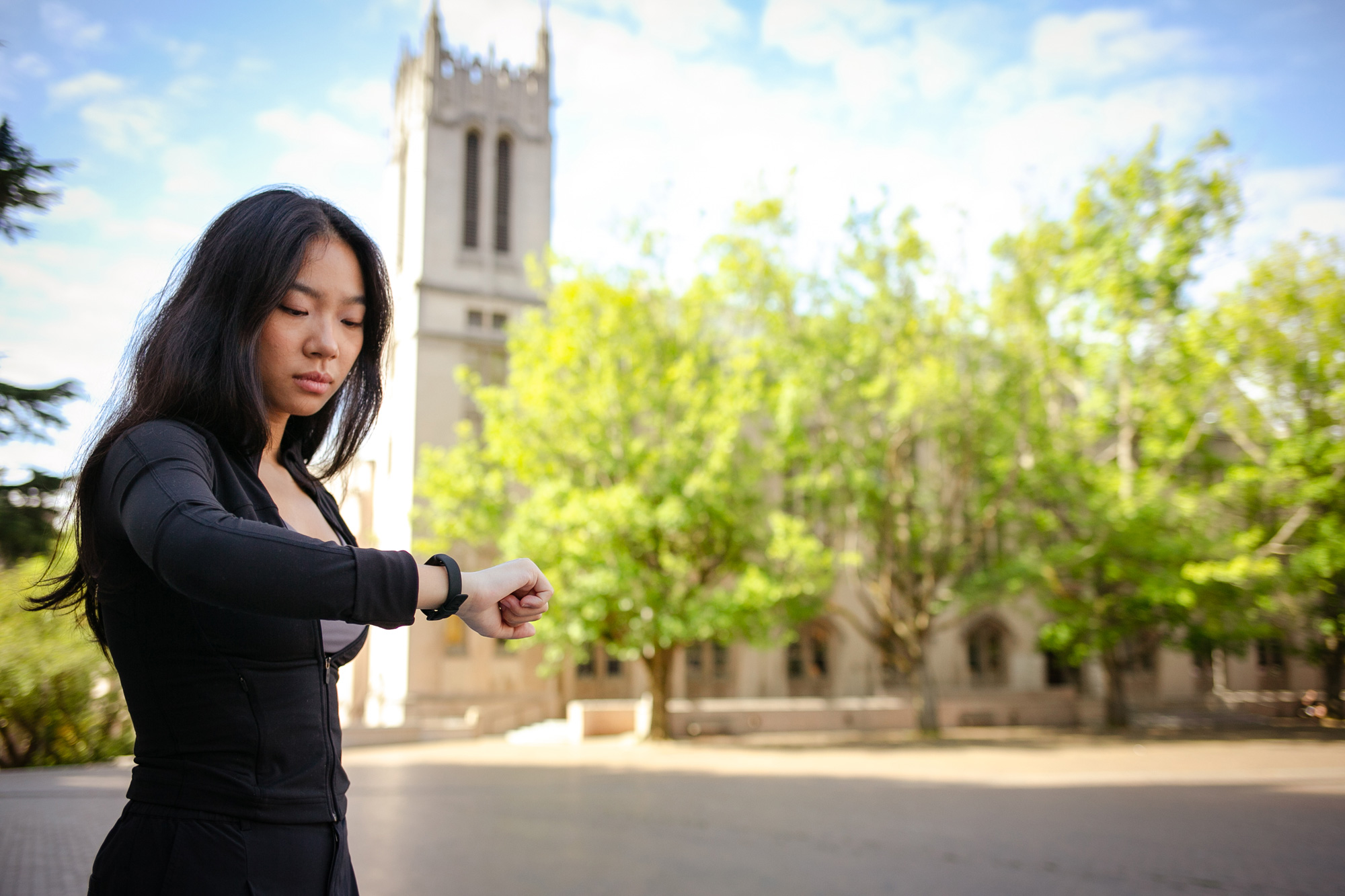Information collected by the smart devices can contribute to an understanding of an individual’s mental well-being, substance use and even experiences of discrimination, Dey says. Starting with known scientific findings (for example, how poor sleep affects grades and is linked to substance abuse and mental-health issues) and pairing them with device data, the researchers can compute thousands of statistics to see what patterns emerge.
In addition to collecting data, the researchers survey the students in the study “sometimes monthly, sometimes weekly, sometimes even hourly to understand their grades, their demographics, how they’re feeling, their sense of anxiety and whether they are using illegal or legal substances at that very moment,” Dey says. They use the sensor and survey data to build behavioral images that allow them to describe, detect and predict.
-

-

It’s uncanny—and maybe a bit unsettling—just how much information a smartphone can track, Dey says. The accelerometer, for example, collects information about how you’re holding the phone and how you’re moving through space. The smartphone also records data about how often you’re on your phone, and whether you’re being physically or socially active. “Most of that information is thrown away,” Dey says. But there is a tremendous, mostly untapped, opportunity for data collected from the devices around us to help us. Time spent on your phone at night is time spent not studying or sleeping, for example, and will likely result in a lower GPA, Dey says. “Even a fleeting interaction like unlocking your phone can be a window into who you are and what your future might hold.”
Through the data collected—like heart rate and sleep patterns—the devices can also measure stress, Dey says. By collecting and modeling the data now, the team may someday build predictive models to help understand what will happen to a student—whether in the next few minutes or the next few months. “These predictive models can be very powerful, but what excites me the most is that they allow you to avoid a negative outcome through targeted interventions or directly support a positive outcome.”
Dey cautions that using these tools to collect data and make inferences also raises challenges around the users’ privacy. “Despite the challenges that exist with this kind of technology, the opportunities to do good in the world are huge,” he says.


